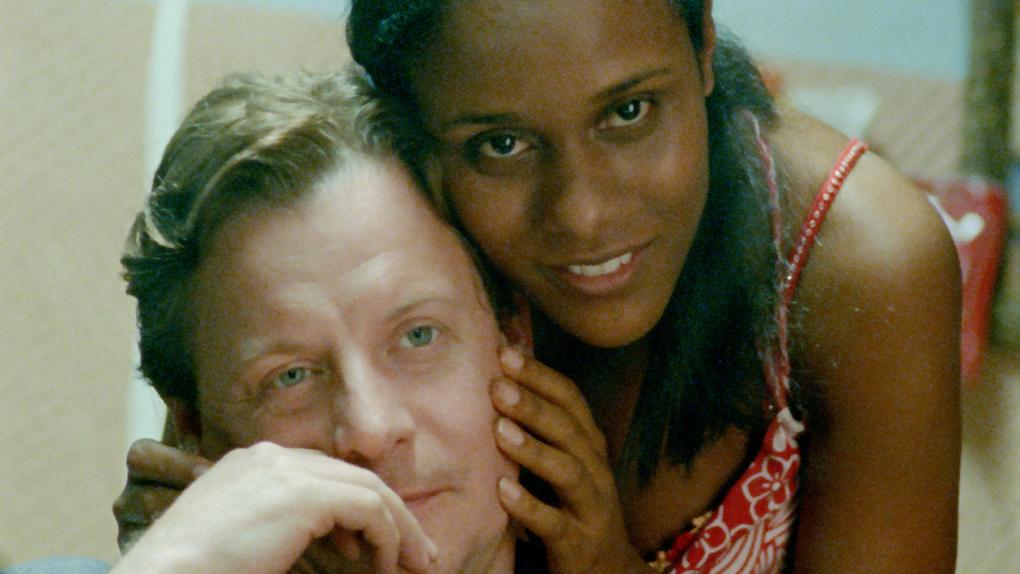In our globalised reality, stories originate from small, local meetings across great geographical distances and cultural differences.
"Rosa Morena" is a film about such a meeting. More than that, it's the product of one. The film is directed by the Brazilian director Carlos Oliveira, who is a graduate of the alternative Danish film school Super16. He wrote the outline and screenplay with the Danish playwright Morten Kirkskov, repeating their collaboration on Three Summers, Oliveira's 2006 graduation film at Super16.
Cross-perspective Vital
The groundwork for the film was laid in a pioneering partnership between the Danish production company Fine & Mellow and Brazil's Ginga11. "Rosa Morena" was shot on Brazilian locations and – with the exception of producer Astrid Hytten, DP Philippe Kress and the two leads, Anders W. Berthelsen and David Dencik – the cast and crew are Brazilian.
Still, Oliveira stresses, the film is Danish. The story is told from the perspective of the Danish protagonist, and that cross-perspective is exactly what gives the film its edge. Oliveira, a long-time resident of Denmark, prepared for the film by doing months of research among mothers who have given up one or more children for adoption, in a favela district on the outskirts of Sao Paulo, a social environment that is alien to most Brazilians as well.
Sao Paolo Holds the Dream
It is no accident that the story is about a Dane, a 40-year-old architect, Thomas, who goes to Sao Paulo, Brazil, to realise his big dream of becoming a father. Thomas' problem is that, as a single gay man, he is legally unable to adopt in Denmark.
Instead, he looks up his old Brazilian friend Jakob, who has settled in Sao Paulo and opened a bar with his wife Tereza and their son. Tereza works for a local NGO, helping poor, broken families in the city's slums. Thomas decides to become a volunteer, too, as a way to get closer to families and single mothers motivated to give up their new-born children for adoption.
The meeting between cultures also becomes a meeting between rich and poor, dramatising the question of the legitimacy of wealthy, childless people offering poor families with many children to get out of deeper poverty by selling a child.

80,000 children Waiting for Homes
It's an urgent question in many developing countries, including Brazil. With a population of 190 million, Brazil still suffers from vast social inequality despite its economic progress. The consequences – wretched living conditions, crime, substance abuse, broken homes and abandoned or exploited children – are all too familiar. In Brazilian child-care institutions, 80,000 or so children are continually waiting for homes.
Despite modern laws, the system is too slow and bureaucratic. Only 10% of these children ever find a home, while families hoping to adopt sometimes have to wait years for an answer.
But does that desperate situation justify the buying and selling of children? The film explicitly asks that question, while Thomas, trying to buy a baby from a single mother, ends up taking a beating and waking up in a rubbish dump. Thomas doesn't give up. Ignoring Jakob's warnings, he insists on finding a child to adopt, without once considering the possible costs to his job and career, not to mention the costs to others.
Thomas doesn't have time to wait for the bureaucratic system to run its course, and when Jakob leads him to Maria, a single, pregnant mother with little chance of feeding another child, they make a deal that also requires them to spend a certain amount of time together during and after her pregnancy.
Essentially rudderless in life, Maria struggles to survive without giving up partying and casual hook-ups. Thomas is a typical single European man who puts his work ahead of everything else and is starting to feel the existential void in his life. Both are looking for something to fill their lives and that brings them closer together. Maria's unborn child is an impediment to her, but for Thomas it is an opportunity to find new meaning in life. When Thomas moves in with Maria to follow the last period of her pregnancy, they make an odd and paradox-ridden nuclear family.
Danish-Brazilian Hybrid
The apparent cynicism of the commercial transaction between the rich gringo and the poor young uneducated favelada with no prospects in life here yields to a questioning of the motives underlying their actions. Why does Thomas really want a child? To give his life meaning? And how can Maria even consent to selling her newborn child to a perfect stranger?
"Rosa Morena" combines the social and documentary realism of Brazilian films of the last few decades with the solid, convincing storytelling of Danish films about "real", ordinary people. Like other recent Brazilian films, "Rosa Morena" draws in the visual wealth of the urban underbelly and the intensity of the social and moral conflicts originating there. The film builds on documentary material staged in its own environment which again is dramatically expanded by Oliveira and Kirkskov's convincing narrative treatment

